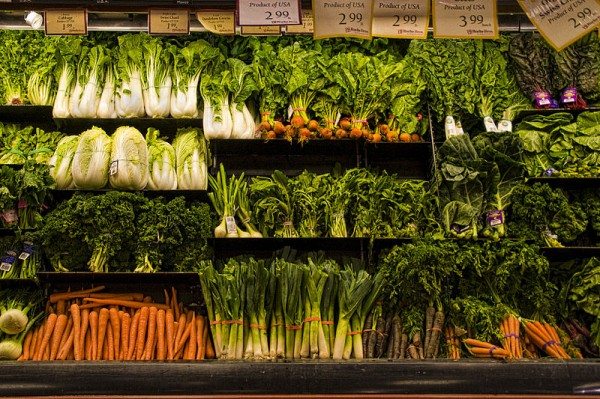Labor & Economy
Cornering the Market on Healthy Food

Fresh produce is not a phrase you hear often in East L.A. Just visit any corner store and you can see why.
East L.A. is one of many “food desert” communities in the L.A. Basin. – communities where healthy, affordable food is difficult to obtain. Walk down any street and you will find a fast-food joint way sooner than you’ll locate a healthy food market. Our residents and kids are bombarded with chips, candy, ice cream and advertising for alcohol when they do go shopping. It’s no wonder that a child will sooner pick up a bag of “takis” (a popular chip brand) than go on looking in vain for healthy food.
In East L.A., the common venue for food purchasing is the corner store. These stores are typically small businesses that sell alcohol, tobacco, snack foods, sodas, candy and very little fresh, high-quality food products. Unfortunately, the fruits and vegetables they sell are frequently bruised, wilted or moldy. Temple University’s Center for Obesity Research and Education published a piece in Pediatrics that identified corner stores as a critical link in the food chain for children, finding that more than half the schoolchildren surveyed shopped at a corner store at least once a day, five times a week; almost one third visited a store both before and after school.
LA CAUSA, a nonprofit organization that engages disenfranchised young people and their families from East Los Angeles, has sought to change East L.A. from a food desert into a food oasis, and has seen corner stores as a primary avenue to create that change. As part of this effort, LA CAUSA launched the People’s Affordable, Local, and Organic Market Alterations (PALOMA) to create a holistic approach to addressing the food desert issue.
The corner store alterations serve as replicable models for profitable and therefore sustainable healthy food retail in East L.A. We implement a comprehensive strategy that includes everything from interior and exterior store renovation to storeowner training/business development to education on healthy food behaviors to green jobs and the use of energy efficiency in alteration.
Edith’s Market, which reopened earlier this month, is the first store to be transformed under PALOMA. Through a partnership with the South Central Farmers, Edith’s will now be able to offer such produce as black kale, castilla pumpkins and Santa Fe peppers, among many other products.
PALOMA is part of a bigger coalition that seeks to put an end to all food deserts in the L.A. area. That coalition, the Alliance for Healthy and Responsible Grocery Stores, supports local legislation that would hold grocery chains responsible for the lack of grocery stores and healthy food options in food deserts.
We are determined to make 2012 the year that we begin to eradicate food deserts in East L.A. and throughout Los Angeles.

-

 Column - State of InequalityJanuary 29, 2026
Column - State of InequalityJanuary 29, 2026Are California’s Billionaires Crying Wolf?
-

 Latest NewsFebruary 3, 2026
Latest NewsFebruary 3, 2026Amid the Violent Minnesota Raids, ICE Arrests Over 100 Refugees, Ships Many to Texas
-

 Dirty MoneyJanuary 30, 2026
Dirty MoneyJanuary 30, 2026Amid Climate Crisis, Insurers’ Increased Use of AI Raises Concern For Policyholders
-

 Featured VideoFebruary 4, 2026
Featured VideoFebruary 4, 2026Protesters Turn to Economic Disruption to Fight ICE
-

 The SlickFebruary 2, 2026
The SlickFebruary 2, 2026Colorado May Ask Big Oil to Leave Millions of Dollars in the Ground
-

 Column - State of InequalityFebruary 5, 2026
Column - State of InequalityFebruary 5, 2026Lawsuits Push Back on Trump’s Attack on Child Care
-

 Column - California UncoveredFebruary 6, 2026
Column - California UncoveredFebruary 6, 2026What It’s Like On the Front Line as Health Care Cuts Start to Hit
-

 The SlickFebruary 10, 2026
The SlickFebruary 10, 2026New Mexico Again Debates Greenhouse Gas Reductions as Snow Melts

